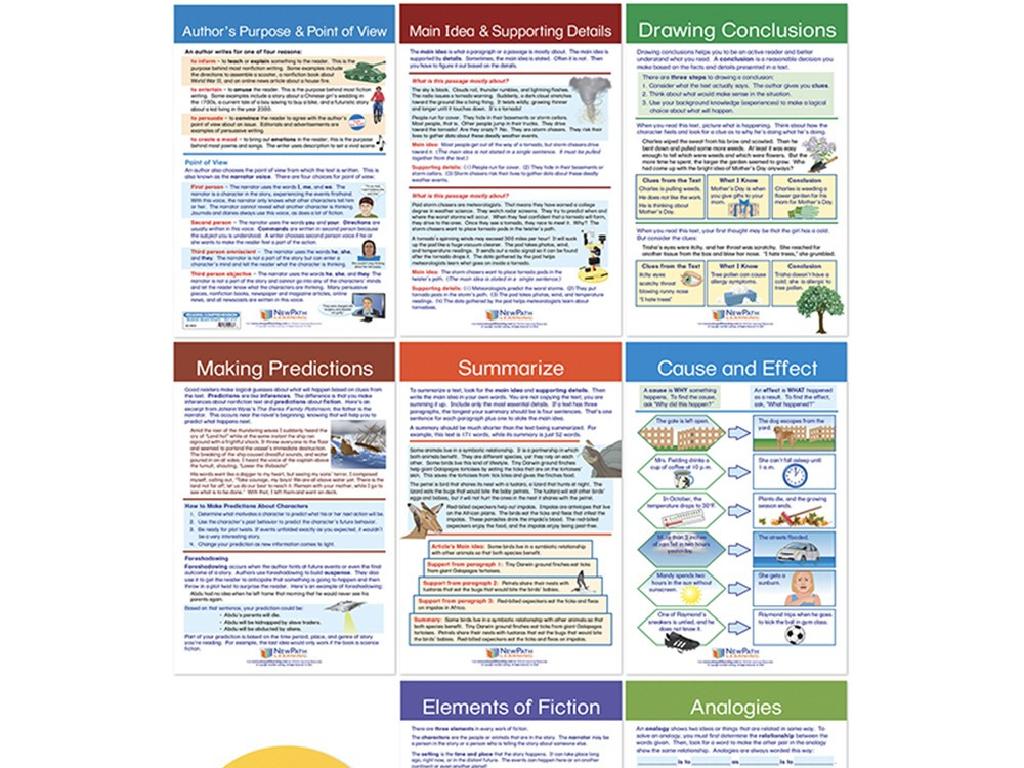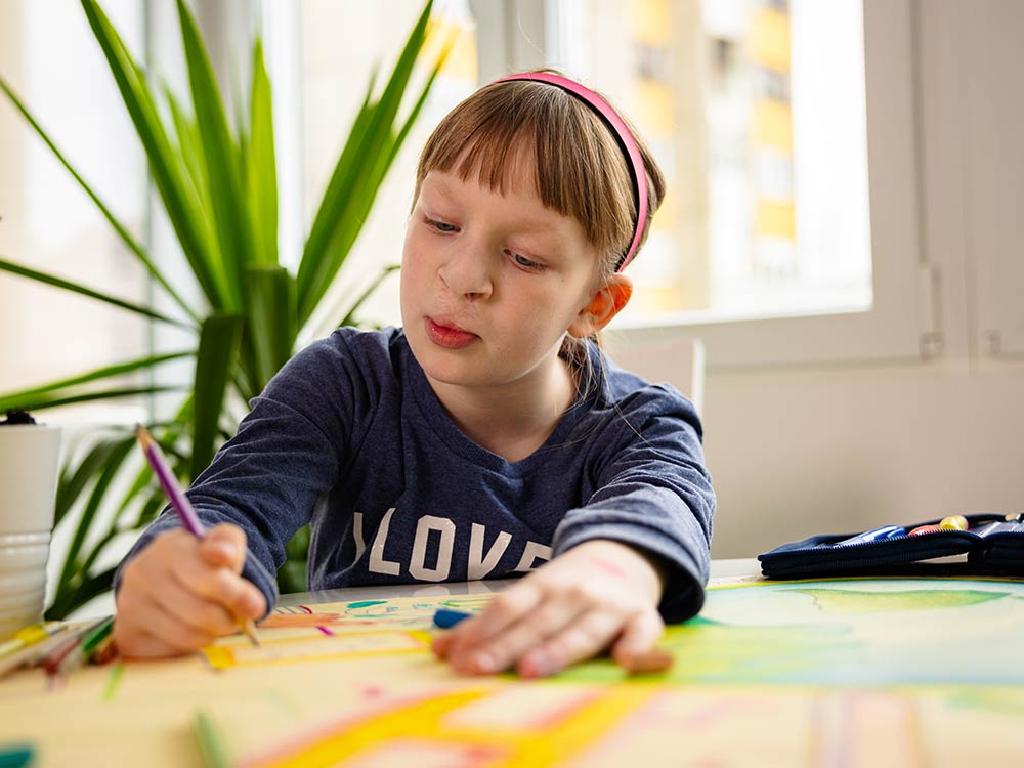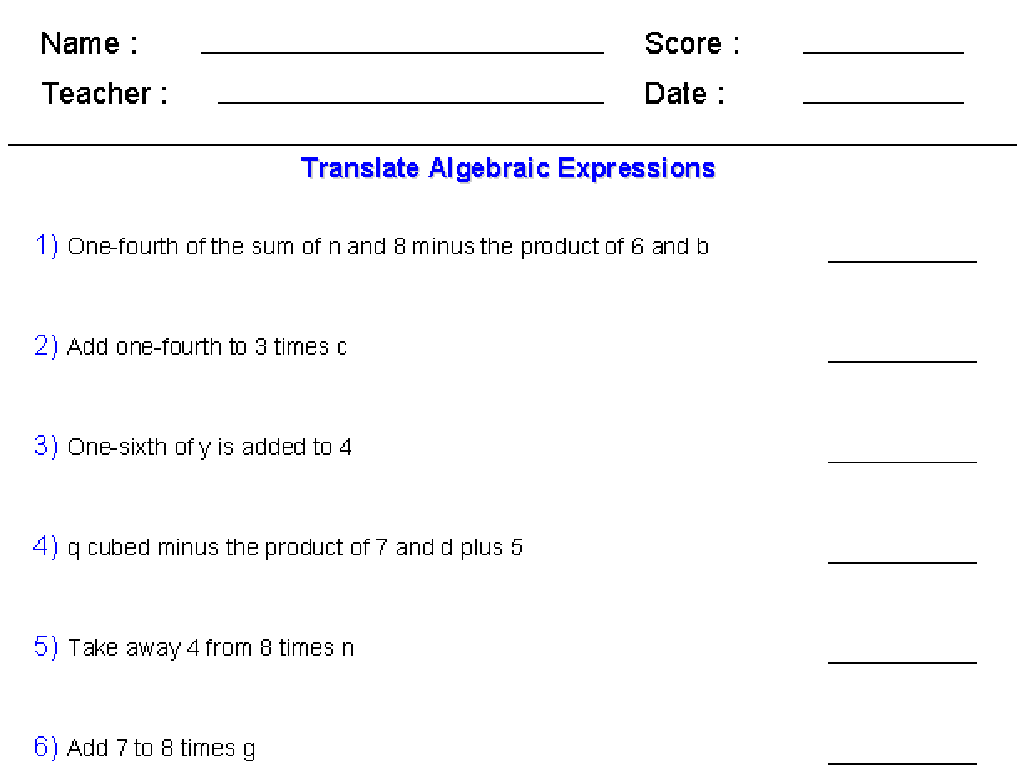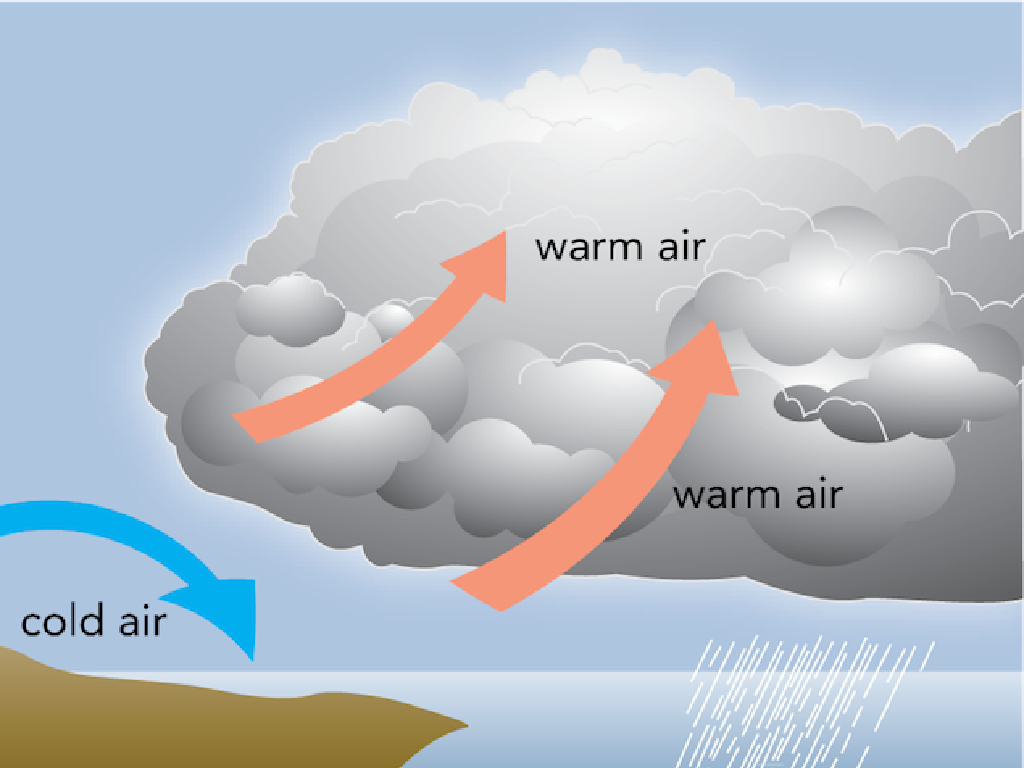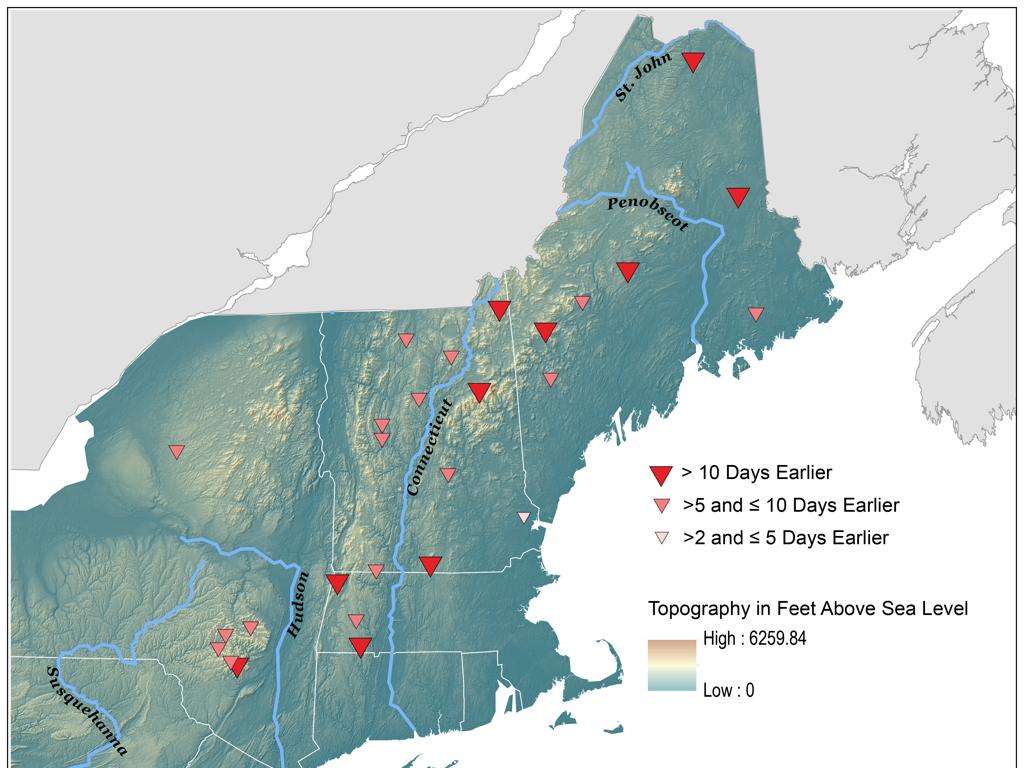Good Citizenship
Subject: Social studies
Grade: First grade
Topic: Civics
Please LOG IN to download the presentation. Access is available to registered users only.
View More Content
Welcome to Good Citizenship!
– Being a good citizen means
– helping others and following rules
– Importance of good citizenship
– It makes our community happier and safer
– Today’s lesson on citizenship
|
This slide introduces the concept of good citizenship to first graders. Emphasize that being a good citizen involves actions like helping others, being kind, and following rules at home, in school, and in the community. Discuss why these behaviors are important, highlighting how they contribute to a happier and safer environment for everyone. Use simple language and relatable examples to make the concepts clear and engaging. During the lesson, encourage students to share their own experiences or understanding of good citizenship. This will help them connect the concept to their daily lives and recognize the value of their contributions to the community.
Being Respectful
– Listen when others speak
– It’s important to hear friends’ words
– Use ‘please’ and ‘thank you’
– These magic words show kindness
– Take turns in games
– Everyone gets a chance to play
– Take turns talking
– Everyone’s ideas are important
|
This slide aims to teach students about respect, a core aspect of good citizenship. Encourage them to understand that listening attentively shows that they value what others have to say. Emphasize the importance of polite words like ‘please’ and ‘thank you,’ which are simple yet powerful ways to show respect and gratitude. Discuss the concept of fairness in taking turns during games and conversations, ensuring that all classmates feel included and valued. Role-playing activities can be effective in demonstrating these behaviors. For example, set up scenarios where students practice listening, using polite words, and taking turns. Reinforce these concepts by praising respectful behavior in class.
Being a Good Citizen: Helping Others
– Share with your friends
– Like letting a friend play with your toy
– Help family with chores
– Like cleaning up your room or setting the table
– Do kind acts on your own
– Like drawing a picture for a friend
– Good citizens help others
|
This slide aims to teach first graders the importance of helping others as a part of being a good citizen. Encourage them to share their belongings with friends to foster kindness and generosity. Emphasize the role they can play in their family by assisting with simple chores, which promotes responsibility. Highlight the value of taking the initiative to do nice things without being prompted, which can include small acts of kindness like making a card for someone. Reinforce that these behaviors contribute to the well-being of their community and help them grow into caring individuals.
The Importance of Following Rules
– Why rules exist
– Rules keep us safe and happy at school and home.
– Benefits of following rules
– Following rules helps everything go smoothly.
– Rules we should follow
– ‘Raise your hand to speak’, ‘Listen when others are talking’.
– Consequences of breaking rules
– Not following rules can lead to time-outs or extra chores.
|
This slide aims to teach first-grade students the concept of rules within the context of their daily lives. Start by explaining that rules are guidelines that help everyone live together peacefully. Discuss how rules at school, like raising hands to speak, help everyone get a chance to talk. At home, rules like cleaning up toys keep the house tidy and safe. Emphasize the positive outcomes of following rules, such as a well-organized classroom and a happy home life. Give examples of simple rules they are expected to follow and discuss the fair consequences of not following rules, such as losing some playtime. Encourage students to think of times they followed rules and how it made them feel.
Caring for the Environment
– Keep our surroundings clean
– Picking up litter makes our parks and schools beautiful!
– Learn about recycling
– Recycling helps reduce waste and save our planet.
– Importance of planting trees
– Trees give us oxygen and homes for animals.
– Care for plants
– Watering plants helps them grow and stay healthy.
|
This slide aims to instill a sense of environmental responsibility in first-grade students by highlighting simple actions they can take to care for their surroundings. Emphasize the role each student can play in keeping their environment clean by picking up litter. Explain recycling by discussing how certain materials can be reused instead of being thrown away, which helps the Earth. Discuss the benefits of trees and encourage students to participate in planting activities, perhaps even starting a class garden. Lastly, talk about the daily care plants need, like sunlight and water, to thrive. Incorporate a hands-on activity where students can practice planting seeds or decorating recycling bins to reinforce the concepts.
Being a Good Citizen at School
– Raise your hand to speak
– Wait for your turn to talk
– Help classmates with lessons
– Share knowledge and help others learn
– Be kind to everyone
– Use kind words and actions daily
– Follow school rules
|
This slide aims to teach first graders about good citizenship within the school environment. Emphasize the importance of raising hands to maintain order and give everyone a chance to speak. Encourage students to help their classmates, which fosters a supportive learning community. Highlight the value of kindness in building friendships and a positive school atmosphere. Remind them that following school rules is also a part of being a good citizen. During the presentation, provide examples of kind actions, like sharing or comforting a friend. Role-play scenarios can be used to demonstrate these points effectively.
Good Citizenship at Home
– Help with chores voluntarily
– Like tidying up toys or setting the table
– Be kind to your siblings
– Sharing toys and playing fair
– Listen to parents and guardians
– Doing what they ask, like bedtime
– Why it’s important at home
– Builds a happy, respectful family
|
This slide aims to teach first graders about being good citizens within their home. Good citizenship starts with small, everyday actions like helping out with household chores without being prompted, which teaches responsibility. Being nice to siblings encourages cooperation and kindness. Listening to parents and guardians is about respect and following guidance for safety and learning. Emphasize the importance of these actions in creating a loving and supportive home environment. Encourage students to share examples of how they practice good citizenship at home and discuss why these behaviors make a positive difference in their family life.
Being Good Citizens in Our Community
– Volunteer to help others
– Help in community events or plant flowers
– Be friendly to neighbors
– Share toys and play nicely with others
– Keep parks and streets clean
– Throw trash in bins and recycle
– How we can all be good citizens
|
This slide aims to teach first graders about the importance of being active and positive members of their community. Encourage them to think of ways they can volunteer, such as participating in local events or helping to beautify their surroundings. Emphasize the value of friendliness and how simple acts of kindness can strengthen community bonds. Discuss the importance of cleanliness, respecting public spaces, and protecting the environment. Finally, engage them in a conversation about what it means to be a good citizen and how their actions make a difference in their community. Activities could include drawing a picture of themselves doing a good deed, role-playing different ways to be friendly, or organizing a classroom cleanup day.
Class Activity: Good Citizenship Role-Play
– Act out good citizenship scenes
– Each group gets a unique scenario
– Show good citizen actions
– Help an elderly neighbor, recycle, be kind in class
– Discuss what we learned
– Share what good actions were in your play
|
This activity is designed to teach students about good citizenship through interactive role-playing. Divide the class into small groups and provide each group with a different scenario that depicts a situation where they can demonstrate good citizenship. Scenarios can include helping an elderly neighbor, recycling to protect the environment, or being kind to classmates. After the role-play, facilitate a discussion where students can talk about the actions they took in their scenarios and what they learned about being a good citizen. This will help reinforce the concepts of community, responsibility, and kindness. Make sure to provide clear instructions and encourage every student to participate in the role-play.
Being a Good Citizen: Review & Action
– Review good citizenship
– What does it mean to be helpful and kind?
– Discuss role-play learnings
– Share what we learned from pretending to be citizens.
– Plan good citizen actions
– Think of ways to help at home or school.
– Reflect on today’s lesson
|
This slide aims to wrap up the lesson on good citizenship. Start by reviewing the key qualities of being a good citizen, such as being helpful, respectful, and responsible. Reflect on the role-play activities to reinforce these concepts and discuss what the students learned from each scenario. Encourage the children to think about how they can apply these lessons to their daily lives, both at home and in school. Ask them to share specific actions they can take to be good citizens today. This reflection helps solidify their understanding and commitment to good citizenship. End the lesson by summarizing the importance of the qualities discussed and how they make our communities better.

